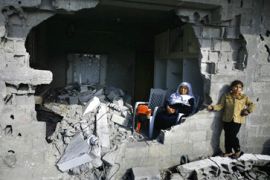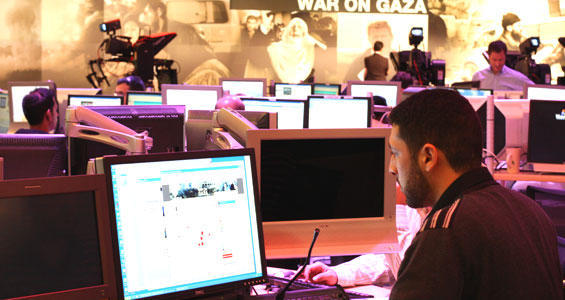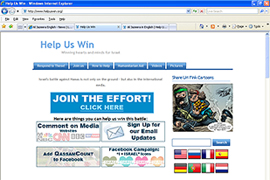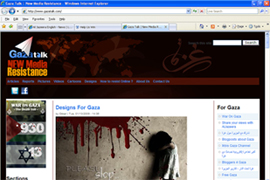Waging the web wars
A new media expert examines how Hamas and Israel defended their positions online.

 |
| Debates on the Gaza war have moved from traditional media to online social networking sites |
Propaganda has always played an important role in the way war is waged.
Using the available traditional media platforms – such as television, radio and print – governments have battled for mindshare in an attempt to convince the public that military engagements are serving their best interests.
Keep reading
list of 4 itemsHong Kong’s first monkey virus case – what do we know about the B virus?
Why will low birthrate in Europe trigger ‘Staggering social change’?
The Max Planck Society must end its unconditional support for Israel
Over time, new communication technologies have forced governments to realign their propaganda campaigns.
In the modern age of warfare, government spokespersons have provided major news networks the opportunity to engage, question and dissect domestic, foreign and military policies.
However, the recent war in Gaza has pushed the boundaries of traditional media as the debate on the conflict opened a new front – online.
Though television has continued to provide viewers with in-depth coverage of the conflict, it did not sufficiently allow the average, frustrated person on the street to express their views.
War of words
| IN DEPTH |
 Latest news and analysis from Gaza and Israel |
 Track the war and submit your own reports |
 Send us your views and eyewitness videos |
 Watch our coverage of the war on Gaza |
Enter the “social” internet – currently termed “War 2.0” or “War of Words” – where people from around the world used social networking websites such as Facebook, Twitter and YouTube to express their opinions to a global audience.
With the internet becoming a battleground of ideas, the average person, armed with a keyboard and an internet connection, became a participant in the conflict.
On December 27, 2008, Israel launched ‘Operation Cast Lead’ against Hamas targets in the Gaza Strip. Within minutes of the first missile landing in Gaza, global reactions appeared online.
During the first few days of the war, online discussions were restricted to war of words. Both sides engaged in heated debates and blamed each other for the fatal surge in military operations.
As the discussions grew, attempts were then made by supporters of both sides to establish a coordinated response aimed at combatting the other side’s propaganda.
With this awareness in mind, both Israel and the Palestinians resorted to a variety of media platforms to justify their positions and tactics used during the conflict.
Israeli supporters set up the Help Us Win website, and some Palestinian supporters created Gaza Talk.
Hundreds of groups were created on Facebook by Israelis and Palestinians to create an awareness of the facts as they saw them.
Israeli government reacts
 |
| Supporters of Israel’s Gaza offensive set up websites to counter Hamas’ media claims |
The Israeli government also attempted to capitalise on the online conversations.
Realising the importance these mediums play in the propaganda war, they held an unprecedented press conference on Twitter.
The Israeli army also set up a YouTube channel and uploaded videos of some of their air raids on Gaza.
While no official online presence has been established by Hamas, pro-Palestinian supporters have been using videos and images to effectively deliver their message.
The Israeli army showed simple black-and-white videos (without audio) of Hamas-launched rockets, while Palestinians offer vivid videos of the chaos and destruction on the ground in Gaza following Israeli air raids.
However, the images from Gaza allowed pro-Palestinian supporters to dominate this online war.
 |
| The Gaza Talk website reported on the damage to civilian life and infrastructure |
The battle to gain public favour is becoming increasingly difficult as governments try to meet the challenges of dealing with a more engaged audience.
On Facebook, hundreds of thousands of people have signed on pro-Israeli and pro-Palestinian groups.
The group Let’s Collect 500000 Signatures to Support the Palestinians in Gaza has 630,002 members while the I Support the Israel Defence Forces In Preventing Terror Attacks From Gaza group has 85,308 members.
On Twitter, the tag “#Gaza” has been in the top 10 trending topics since the Gaza war began on December 27.
As the propaganda war enters a new phase, governments now need to fully embrace these new technologies and use them to their benefit.
Until then, online social communities will continue the debates which will likely last well beyond the current war in Gaza.